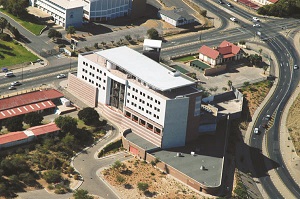
Rent prices rebound from two-year negative growth territory

The FNB Rental Index for the first quarter of 2020 shows a 12-month average growth of 0% at the end of March, bringing the national monthly average rent price to N$7, 465.
The Covid-19 lockdown is bound to paint a different picture when looking at the second quarter of 2020, with a likely devastating effect on tenants and landlord cash flow going forward, Frans Uusiku, FNB Market Research Manager said.
“We expect the rental market to hit a growth plateau in the second quarter before it reverts back to negative growth territory,” Uusiku said.
When looking at the first quarter of 2020, the FNB Rental Index states that the listed rental units were largely concentrated in the 1-bedroom and 2-bedroom segments, accounting for 43% and 32% of the overall listings, respectively. Uusiku explains that these rental units were only recorded in Windhoek where the rural-urban migration is relatively high compared to other towns.
“This observation continues to affirm the existing imbalance between the demand and supply dynamics in the housing market, particularly in the medium to higher-end of the market. The overall improvement in the rental index was driven mainly by the 2-bedroom and more-than-3 bedrooms segments, which grew by 3% and 2%, respectively,” he added.
Moreover, growth in deposits charged by landlords contracted by 32.1% at the end of March 2020 compared to a growth of 11.8% recorded during the same period of 2019. This brought the deposit to rent ratio to a 10-year record low of 5.8%. The last time Namibia experienced such a low deposit to rent-ratio was in 2009 during the global financial crisis. The contraction was notable across all the four rental segments with the 1, 2, and 3-bedroom units contracting by 22.4%, 39.8% and 33.2% respectively, while the more-than-3 bedrooms segment contracted by 28.1% at the end of March 2020, implying that upfront tenancy deposit is becoming less of a requirement due to stifling economic conditions.
“While the impact of the Covid-19 crisis and lockdown is not yet reflected in the data, the stark reality is likely to be reflected in the second quarter with a potential growth reversal in rent prices expected, as landlords may be forced to negotiate for discounted rent to remain afloat,” Uusiku said.












































